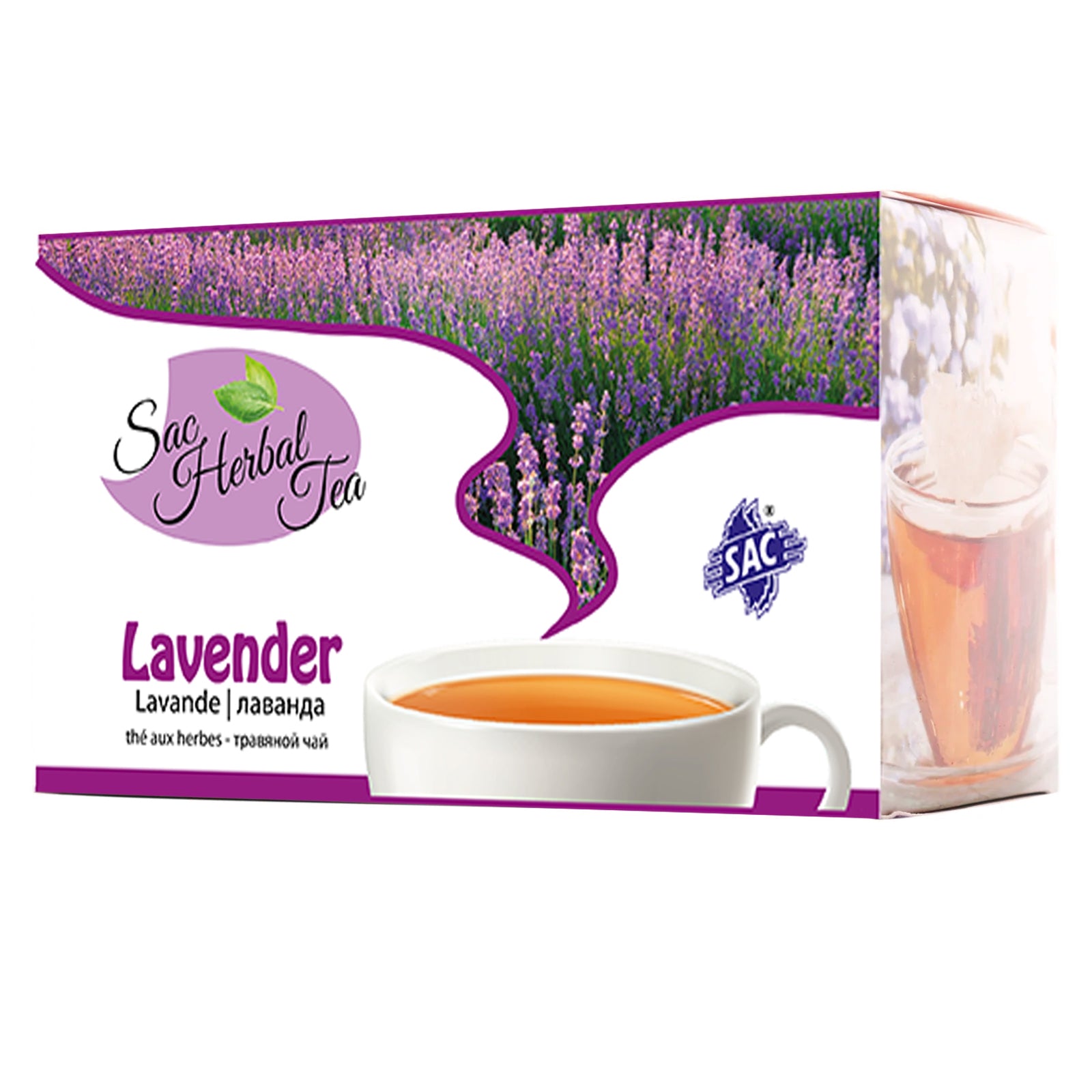


Introduction to Lavender Herbal Tea: A Soothing Elixir from Nature
Lavender herbal tea is a delightful and soothing infusion made from the fragrant flowers of the lavender plant. It is known for its calming properties and tranquilizing aroma, lavender tea for centuries used as a natural remedy to alleviate stress, anxiety and promote relaxation. The origins of lavender have traced back to ancient civilizations for medicinal and culinary uses. Today lavender herbal tea is famous for its unique flavor profile and numerous health benefits.
The Origin of Lavender:
The lavender plant (Lavandula) has a rich history back over 2,500 years. It originated in the Mediterranean region, particularly in countries such as France, Spain, and Italy. The ancient Greeks and Romans were among the first to recognize the therapeutic properties of lavender, using it as an ingredient in their herbal remedies, perfumes, and bathing rituals. Over time, lavender's popularity spread throughout Europe and eventually to other parts of the world.
Derivation of Lavender:
The name "lavender" is derived from the Latin word "lavare," which means "to wash." This name reflects its traditional use in ancient bathing practices. Lavender is a hardy and aromatic perennial shrub that belongs to the Lamiaceae family. It is characterized by slender, woody stems covered in narrow, silvery-green leaves and its iconic clusters of small, vibrant purple flowers. Flowers are the primary source of soothing fragrances and essential oils in lavender herbal tea.
Lavender flowers are carefully dried to preserve their essential oils and flavor, and they are then steeped in hot water to release their calming essence. Lavender herbal tea is celebrated for its light, floral taste with subtle herbal notes, providing a serene and comforting experience with each cup.
In summary, lavender herbal tea is a cherished elixir that hails from the Mediterranean region, boasting a rich history and a myriad of therapeutic properties. As we delve deeper into the art of herbal tea, the calming allure of lavender continues to captivate tea enthusiasts worldwide.
It's essential to remember that while lavender herbal tea offers potential benefits, individual responses may vary. Pregnant and breastfeeding individuals should consult their healthcare providers before consuming large quantities of lavender tea. Additionally, those with allergies or sensitivities to lavender should exercise caution and avoid consuming lavender products. As with any herbal remedy, moderation and consulting with a healthcare professional are always advisable.
While lavender herbal tea is generally considered safe for most people when consumed in moderate amounts, there are some risk factors and considerations to be aware of:
6. Photosensitivity:
Some people may experience increased sensitivity to sunlight after consuming lavender or using lavender products topically. This reaction, known as photosensitivity, could lead to sunburn or skin irritation when exposed to the sun. Avoid excessive sun exposure after drinking lavender tea or using lavender-infused skincare products.
In conclusion, lavender herbal tea is a time-honored elixir with a rich history of potential health benefits. Its origins in the Mediterranean region and subsequent spread worldwide have made it a beloved choice for those seeking relaxation, stress relief, and improved sleep. The delicate and aromatic flowers of the lavender plant, carefully harvested and dried, provide a soothing and flavorful infusion that delights the senses.
Secure Payment & Easy Ordering
Enjoy a smooth and reliable shopping experience with our trusted payment methods:
· Cash On Delivery
· Bank Transfer
· JazzCash
· EasyPaisa
· PayPal
Prefer to order directly?
Order on WhatsApp: +92 323 8200125
Fast, safe, and effortless — just the way luxury shopping should be.
Return & Replacement Policy
Your satisfaction is our priority.
We offer a hassle-free return and replacement on all orders:
.Damaged Parcel:
If your order arrives damaged, we will replace it immediately.
.Wrong Product Received:
If you receive the wrong item, simply send it back — we’ll dispatch the correct one right away.
.Didn’t Like the Product?
No problem! You can return it to us and we will replace it with any other product of your choice.
How it works:
Just send the product back to us. Once we receive it, your replacement will be shipped within 24 hours.
Simple. Easy. Risk-free shopping.
*7 Days money back guarantee*
Terms & Conditions Apply